Mingjie palm kernel shell biochar machine utilizes continuous pyrolysis technology, and is the core equipment for large-scale biochar production. We equip it with an advanced exhaust emission system, significantly reducing environmental impact.
Palm kernel shell (PKS), a core byproduct of the palm oil processing industry, has high density, low moisture content, and stable calorific value. It is an ideal raw material for producing high-quality biochar. Palm kernel shell biochar is widely used in fuel replacement, activated carbon production, and soil improvement. It offers both economic and environmental benefits.
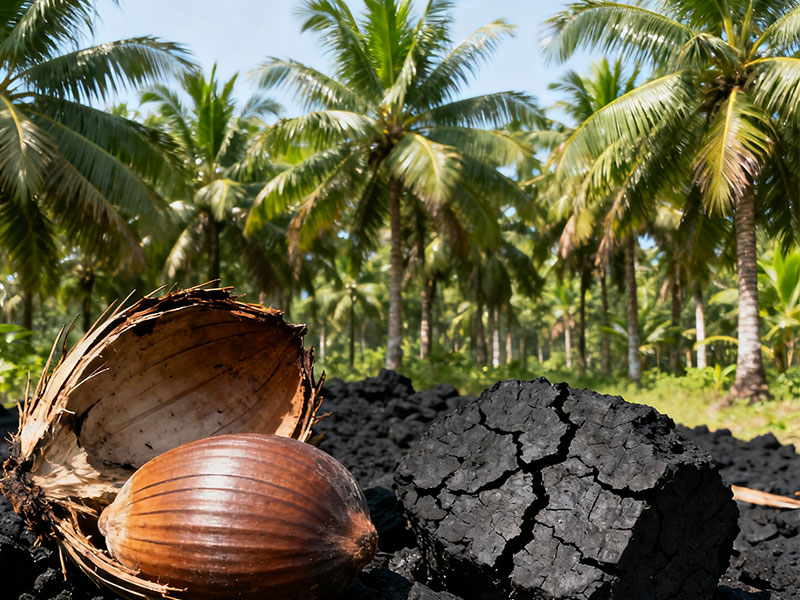
Near-zero exhaust emissions: The palm kernel shell biochar machine is equipped with a three-stage exhaust gas treatment system. Including condensation recovery, desulfurization and dust removal, activated carbon adsorption.
Energy Recycling: The biochar production equipment purifies the combustible gases generated by pyrolysis and reuses them for furnace heating, replacing external fossil energy sources. This allows for energy self-sufficiency rates exceeding 70%. The Mingjie palm kernel shell biochar machine also features a waste heat recovery system. This system uses waste heat from the exhaust to generate steam for drying, significantly reducing its carbon footprint.
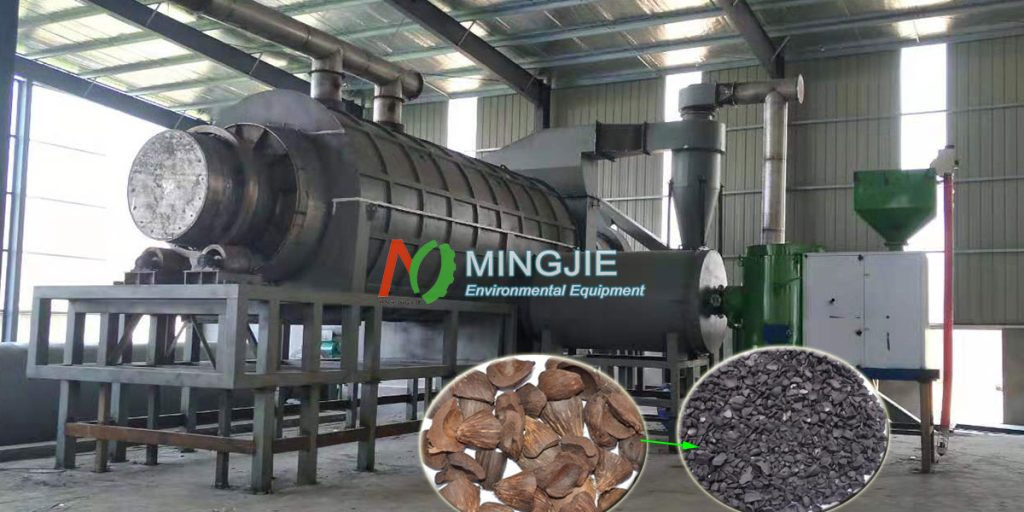
Controllable solid waste and wastewater: The biochar produced by the continuous biomass pyrolysis machine can be used to make charcoal powder or charcoal pellets, achieving a 100% solid waste resource recovery rate. The cooling process utilizes a closed water circulation system, achieving zero wastewater discharge.
Mingjie Biomass Carbonization Equipment can convert palm kernel shells into biochar. Below is a detailed description of the palm kernel shell biochar production process.
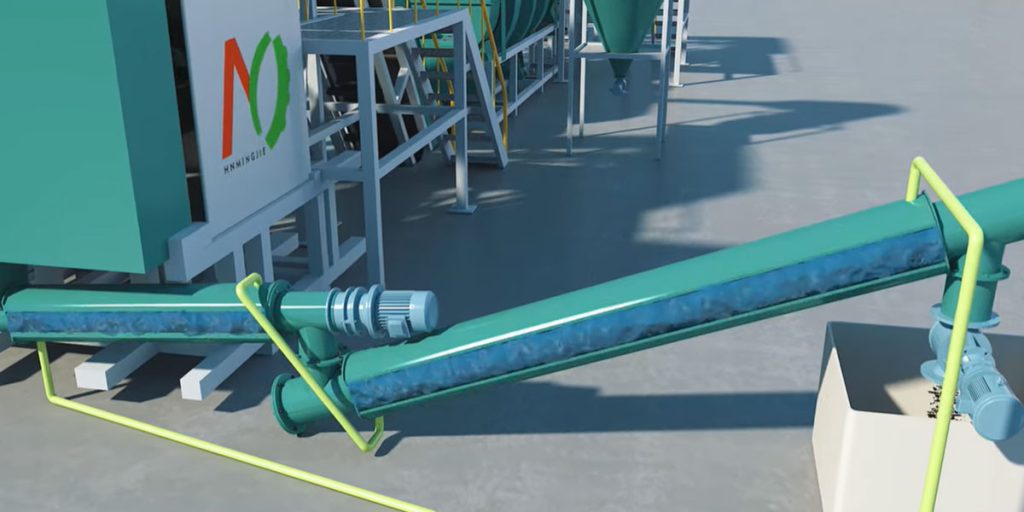
One ton of palm shells can yield approximately 0.3 tons of biochar. Processing into activated carbon offers even greater added value. Demand for palm shell activated carbon has been on the rise in recent years, particularly in environmental protection and water treatment.
While palm shell raw material costs are relatively low, the market prices of the carbonized material. And activated carbon are relatively high, It offers considerable profit margins.
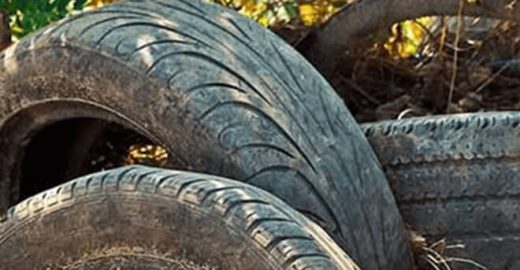
An Australian general waste and tire recycling authoritative body turned to Environment Minister Sussan Ley in November last year with a request to prohibit whole bale tire…
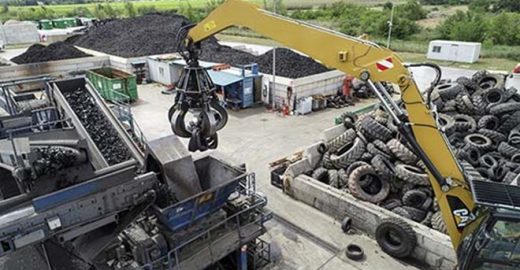
Aliapur – a French end-of-life tire management authority – recently announced a call for applications to participate in a tender to renew end-of-life tire collection and recycling contacts for 2021–2024..